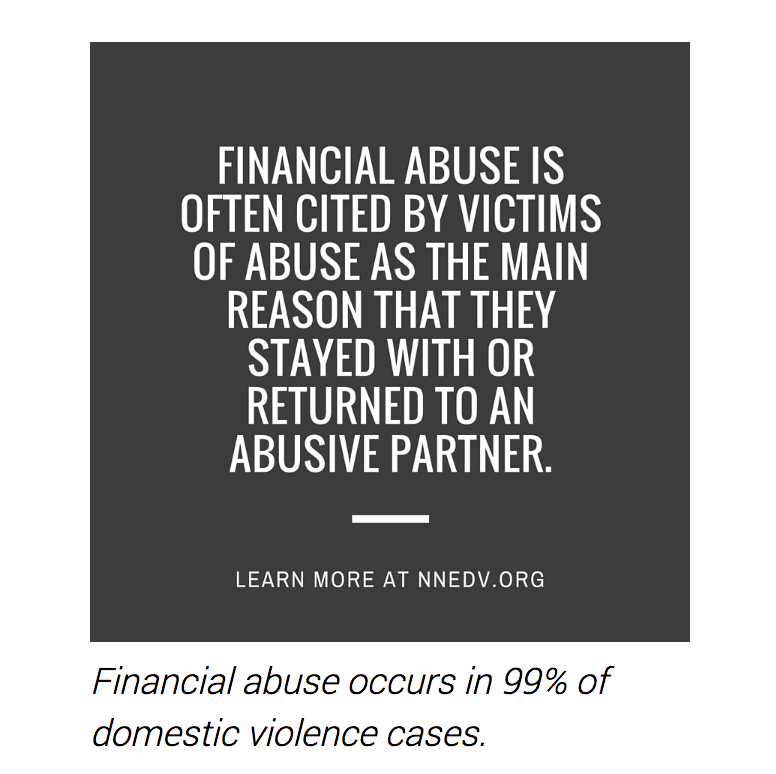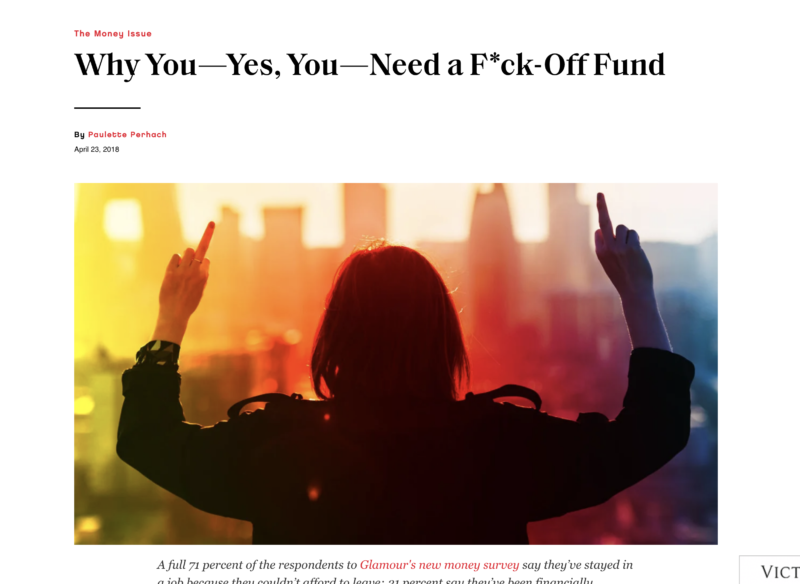Financial Abuse is a highly insidious tactic where someone prevents a person from acquiring, using or maintaining their financial resources. Put plainly, someone stops you from controlling your money and thereby takes a lot of power over your ability to act in your own best interests.
It often goes hand in hand with domestic violence and emotional abuse. Almost 20% of adults have been a victim of financial abuse. It affects mostly women and is a huge hardship on low income and vulnerable populations including undocumented populations, children, the disabled/ differently abled and the elderly.

If you or someone you know may be the victim of financial abuse, this resource list is here to help. You may also want to watch this video featuring Berna Anat of Heyberna.com, who is educated on teaching women how to get help, get out and to protect themselves from these situations.
Find her at:
- INSTAGRAM: HTTPS://WWW.INSTAGRAM.COM/HEYBERNA/
- WEBSITE: HTTPS://WWW.HEYBERNA.COM/
- YOUTUBE: HTTPS://WWW.YOUTUBE.COM/USER/HEYBERNA
This form of abuse is not easily recognized. It begins with small offenses that slowly become more controlling overtime. This may involve a partner insisting they handle finances without your input or demanding you stop working altogether. Though limiting your ability to earn money is not the only way abusive partners exert control. They may also limit your access to anything you haven’t paid for, like a car or other basic necessities.
Signs of Financial abuse
Someone (a partner, parent, caregiver, etc.)….
- Gives you an allowance or budget without your input
- Looks at your accounts without your permission
- Threatens to cut off money supply when angry
- Changes your account passwords or moves your accounts
- Limits your access to money
- Uses money as a tool to control you
- Requires you to account for everything you spend
- Pressures you to quit your job or sabotages your work responsibilities
- Feels entitled to your money or assets
- Spends your money without your knowledge
- Controls how all of the household finances are spent
- Limits your ability to attend job training, pursue higher education, or otherwise advance your career
- Maxes out credit cards in your name (and then doesn’t make payments on those credit cards)
- Uses funds from children’s savings account without mutual agreement
- Prevents you from working by hiding your keys, or offering to babysit and then not showing up
- Engages in other forms of abuse like belittling or physical abuse when they get angry over your spending habits
If you or someone you know might be a victim…
- Speak to a trained financial abuse counselor (FREE) – 800.799.SAFE (7233) or visit The National Domestic Abuse hotline website: https://www.thehotline.org/ – you can chat with a person immediately, 24/7
- Gather your documents (or make copies of): pay stubs, tax docs, personal identification and store those somewhere safe.
- Change your internet history: Make sure to clear your history so the domestic abuser can’t see you’re seeking help.
- Make a financial plan to leave
The National Network to End Domestic Violence has an economic justice course that is set up to help you leave the situation safely: https://nnedv.org/content/economic-justice/

If you’re undocumented…
It can be increasingly hard to protect your money if your citizenship is in question.
If you don’t have a social security number, required to open most bank accounts, use Paypal or Marcus by Goldman Sachs to keep your money safe.
For inspiration:
Dreamer Money helps future Americans get their financial footholds. Check them out.
How to protect yourself from Financial Abuse
First, it isn’t your responsibility to stop financial abusers and it isn’t your fault if you’re a victim of one. There are some things you can do to make sure you aren’t an easy target going into relationships.
- Be open about money with partners. Discussing money early is key.
- Show your knowledge of your financial situation.
- Financially empower yourself. Have multiple accounts and keep that info safe.
- Do not give away full financial responsibility to a partner
- Know your numbers – how much you make, where your money is going.
- Keep your own stash of money or savings apart from your combined accounts
Consider keeping a F* off Fund. Check it out here: The F*off fund by Paulette Perhatch

Other resources:
Woman Inc.: Remote peer counseling and support help
Purple Purse: Help for survivors to move forward, courses in English and Spanish.
—
Good luck friends. Have strength. -Sarah


